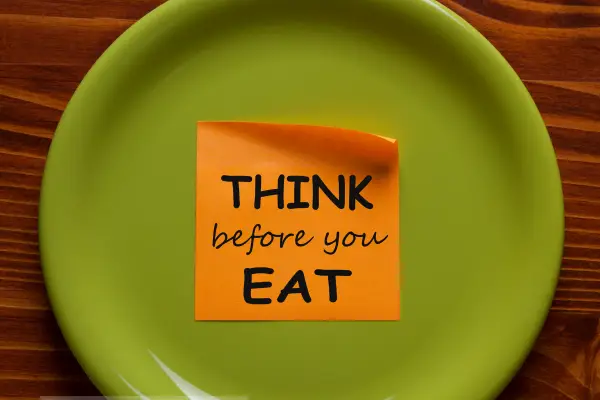Table of Contents
The Growing Popularity of the Vegan Diet
The vegan diet has gained remarkable popularity over recent years. More people are choosing plant-based eating for various reasons. This shift is driven by growing awareness of health benefits, environmental concerns, and animal welfare. The vegan diet, which excludes all animal products, appeals to a diverse group of people. It’s embraced by those seeking a healthier lifestyle, as well as by individuals concerned about the impact of animal farming on the planet. The rise in veganism is evident in the increasing availability of plant-based products, from dairy alternatives to meat substitutes.
- Health benefits: Many people turn to a vegan diet to improve their health. A well-planned vegan diet can reduce the risk of chronic diseases, like heart disease, diabetes, and cancer.
- Environmental impact: The environmental benefits of veganism are significant. Reducing animal agriculture can decrease greenhouse gas emissions, water usage, and land degradation.
- Animal welfare: For those concerned about animal rights, veganism offers a way to avoid contributing to the exploitation and suffering of animals in the food industry.
The trend towards veganism shows no signs of slowing down. With more restaurants offering vegan options and an increasing number of people adopting plant-based diets, veganism is becoming mainstream. This growing acceptance has led to a wealth of resources for those interested in exploring a vegan lifestyle. From cookbooks to online communities, support is readily available for those looking to make the transition. As more people discover the benefits of a vegan diet, its popularity will likely continue to rise.
Health Benefits of a Vegan Diet
A vegan diet offers numerous health benefits when carefully planned. By focusing on whole foods and plant-based ingredients, individuals can enjoy a diet rich in nutrients. One of the key benefits of a vegan diet is its ability to lower the risk of chronic diseases. Studies have shown that vegans tend to have lower cholesterol levels, blood pressure, and body mass index (BMI) compared to non-vegans. This can lead to a reduced risk of heart disease, type 2 diabetes, and certain cancers.
- Weight management: A vegan diet can help with weight loss or maintenance. Plant-based foods are typically lower in calories and higher in fiber, which promotes a feeling of fullness and aids in digestion.
- Nutrient intake: Vegan diets can be rich in essential nutrients like vitamins C and E, folate, magnesium, and potassium. These nutrients support overall health, including immune function and energy levels.
- Improved digestion: The high fiber content in plant-based foods promotes healthy digestion and regular bowel movements, reducing the risk of constipation and other digestive issues.
However, it’s important to note that a poorly planned vegan diet can lead to nutrient deficiencies. Vegans should ensure they get enough vitamin B12, iron, calcium, and omega-3 fatty acids. These nutrients are typically found in animal products, so supplementation or careful food choices are necessary. Despite these considerations, the health benefits of a well-planned vegan diet are substantial. With the right approach, a vegan diet can support long-term health and well-being.
Creative and Delicious Vegan Recipes
One of the most exciting aspects of adopting a vegan diet is discovering new recipes. Vegan cooking is incredibly versatile, offering endless possibilities for delicious and creative meals. From breakfast to dinner, and even dessert, there are countless vegan recipes that can satisfy any craving. The key to a successful vegan recipe is using a variety of fresh, plant-based ingredients that provide flavor, texture, and nutrition. With the right techniques and ingredients, it’s easy to create satisfying vegan meals that everyone can enjoy.
- Breakfast ideas: Start your day with a nutritious vegan breakfast. Try a smoothie bowl topped with fresh fruit, nuts, and seeds, or enjoy avocado toast with a sprinkle of nutritional yeast for a cheesy flavor.
- Lunch options: For a quick and healthy lunch, consider a quinoa salad with roasted vegetables and a tahini dressing. Another option is a hearty lentil soup, packed with protein and fiber.
- Dinner recipes: Vegan dinners can be just as satisfying as traditional meals. A vegetable stir-fry with tofu and brown rice, or a creamy cashew-based pasta, are both delicious and nutritious choices.
Experimenting with different flavors and ingredients is part of the fun of vegan cooking. By incorporating a variety of spices, herbs, and plant-based proteins, it’s possible to create meals that are both delicious and nutritious. Additionally, vegan baking offers a chance to get creative with alternatives to eggs and dairy. Ingredients like flaxseeds, chia seeds, and plant-based milks can be used to create everything from cookies to cakes. The possibilities are truly endless when it comes to vegan recipes.
Nutrient Considerations for Vegans
While a vegan diet can be highly nutritious, it’s important to pay attention to certain nutrients that may be lacking. Because the diet excludes all animal products, some nutrients need special attention to ensure they are adequately consumed. By being mindful of these nutrients, vegans can maintain a balanced diet that supports their overall health. One of the most crucial nutrients for vegans is vitamin B12, which is primarily found in animal products. Vegans can obtain B12 through fortified foods or supplements.
- Iron: Plant-based iron sources include lentils, beans, tofu, and fortified cereals. Pairing these with vitamin C-rich foods, like citrus fruits, can enhance iron absorption.
- Calcium: Vegans can get calcium from fortified plant milks, leafy green vegetables, and tofu. It’s also important to ensure adequate vitamin D intake, which aids in calcium absorption.
- Omega-3 fatty acids: Flaxseeds, chia seeds, and walnuts are excellent sources of plant-based omega-3s. These healthy fats are important for heart health and brain function.
By carefully planning their diet, vegans can meet their nutritional needs without relying on animal products. It’s also recommended to have regular blood tests to monitor nutrient levels and make adjustments as needed. With proper attention to nutrition, a vegan diet can be both healthy and sustainable. Taking the time to learn about these nutrients and incorporating them into daily meals can help vegans thrive on their plant-based journey.
Sustainability and Ethical Considerations
The vegan diet is not only beneficial for health, but it also has significant environmental and ethical advantages. By choosing a plant-based diet, individuals can reduce their environmental footprint and contribute to a more sustainable food system. Animal agriculture is a major contributor to greenhouse gas emissions, deforestation, and water pollution. By reducing or eliminating animal products, vegans can help mitigate these environmental impacts. Moreover, a vegan diet requires fewer natural resources, such as land and water, compared to a diet that includes animal products.
- Environmental benefits: The production of plant-based foods generates fewer greenhouse gases and uses less water and land compared to animal agriculture. This makes the vegan diet more sustainable and eco-friendly.
- Animal welfare: A key ethical consideration for many vegans is the treatment of animals. By choosing a vegan diet, individuals avoid supporting industries that exploit animals for food, clothing, and other products.
- Global food security: A shift towards plant-based diets can also improve global food security. By using land and resources more efficiently, it’s possible to produce enough food to feed the growing global population.
The ethical and environmental benefits of a vegan diet align with the growing awareness of sustainability issues. As more people recognize the impact of their food choices, the demand for plant-based options continues to rise. This shift not only benefits individual health but also contributes to a more sustainable and compassionate world. For those considering a vegan diet, understanding these ethical and environmental factors can provide additional motivation to make the transition.










